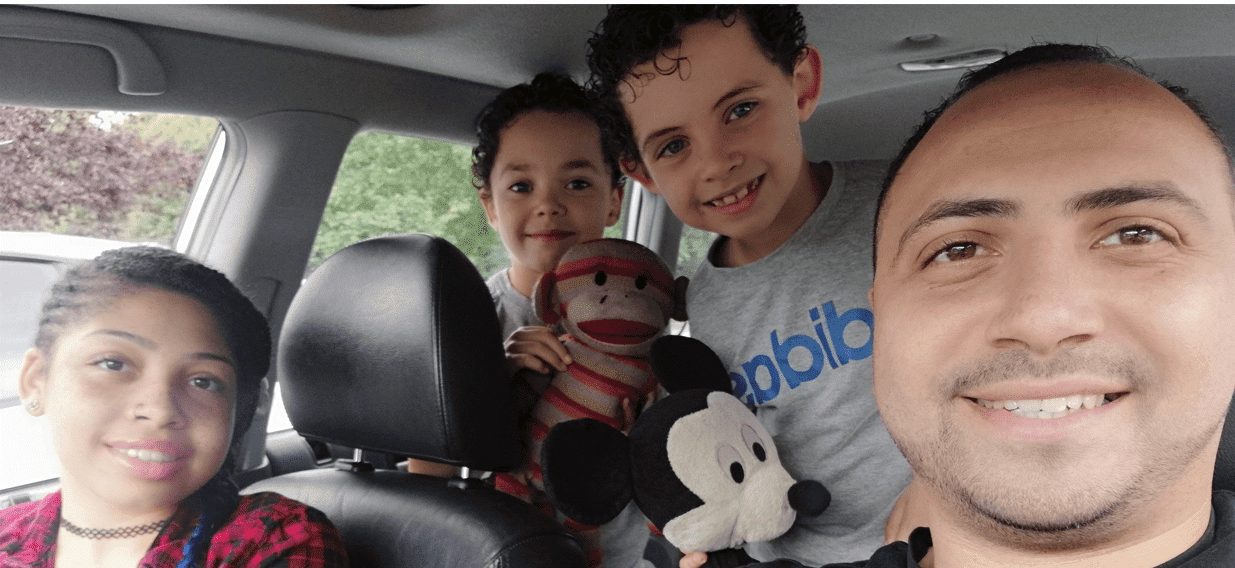What is gentle parenting and how do I do it?
Gentle parenting is all about providing your children with compassion and love while still being firm and setting boundaries for yourself and the children. I have been a father since I was seventeen, and I have three wonderful children, all of which were completely different in upbringing and personality.
How can I parent with kindness?
Gentle parenting is a more compassionate approach to parenting. We urge greater encouragement and support rather than more control and discipline. It is about working with the child rather than controlling them. A kinder approach to children will result in stronger relationships, more understanding, and improved communication.
What does it mean to be gentle with children?
- It means understanding when to be tough, forceful, and to draw a line.
- It means being able to discipline your children in a non-threatening tone of voice.
- It means supporting and advocating for your children while also becoming their strongest advocate.
- It means respecting, enforcing, and sticking to limits and norms while being caring and compassionate.
- It means understanding that it is OK to make and enforce rules for your children.
- It means knowing your children’s language and being willing to employ gentle words and calm emotions.
It is about listening to that inner voice that says, “This is what I believe is best, and if you don’t like it, go live in your room.” This may appear to be a wide statement, but it makes sense when you consider it.
When we ask a child to do something and they refuse, it is reasonable for them to feel puzzled, agitated, and angry, may even shout, throw items, run away, and even hit others. This is a sign that our strategy is failing.
How do I do gentle parenting? 15 Tips for Gentle Parenting Success

Simply said, I practise gentle parenting every day and in every moment with my children. This, to be honest, is the key. I am not really “doing gentle parenting” if I do not “do gentle parenting” in every single moment. I want to make sure that my parenting is kind, gentle, and loving, and I am avoiding any displays of harshness or dominance, but we must be consistent and fair. I am not always successful and make the same mistakes we all make, but without guidance, I could not see where I was going wrong.
Here are some helpful tips for parents who want to incorporate gentle parenting into their lives.
1. Connect with children daily
Connect with your kids daily, and when you are alone with your children, spend time in deep and meaningful conversations. Ask your kids questions, listen to them, ask them questions, and encourage them to share. You can do this with an enjoyable book I authored called Nurturing Kindness by Nature: Life Lessons to Get Parents and Children Talking. You read a bedtime story to them at night which brings up a moral or ethical situation and tells how and why they should deal with it. You can then ask them if they have experienced anything similar which can get us talking about embarrassing situations, they may have had but been too afraid to talk about before hearing a story. It’s also a safe and comfortable environment where you get one on one time to talk.
2. Be thoughtful of their needs
Remember that kids need security and safety, but they also need to learn how to manage their emotions and behaviours. They need to learn that they can learn new skills and experiences and that they are not failures if they make mistakes or do not reach their goal or achievement.
3. Talk about their Emotions with them
Don’t be fearful of teaching your kids about emotions and taking charge of their behaviour. A lot of parents would feel scared to teach their kids about emotions and how to manage their behaviour. I have always thought differently and been comfortable with talking to my children about emotions.
I have come to understand that children often lack an intense sense of security, and they are so used to being controlled, that they often struggle with feeling in control of their own behaviour.
Helping your child to understand and manage their emotions will lead to them feeling more secure. The more you connect with them and the more you help them manage their behaviour, the more confident they will be, the more they will develop the skills to behave appropriately and the more mature and responsible they will feel about their behaviour.
4. Make every minute count
When you are active with your children, make sure that you have fun and give lots of attention to them. Do not be in a hurry or angry, and just enjoy the trip. When you are at home, take time to connect with your kids. Let them play with you. Make family home evenings fun.
5. Help your child feel safe
Children often need help to feel safe and secure, and they are often overly sensitive to things like physical touch and eye contact. These are simple and easy things to do, and they often go a long way to helping them feel confident and happy.
6. Be compassionate with your children.
Recognise when your kids are angry and upset and understand that they are trying to find their way to calmness and comfort. They are not bad kids. Show empathy and compassion and let them know that it is ok to feel angry or upset, but that they can find a way to express their anger, sadness, or discomfort in a calm and gentle way.
7. Focus on trying new things.

Kids do not get a chance to try many different things, or to try out lots of things at the same time, all of the time. To be honest, they often do not know what they want or how to manage a situation, so they need to be given opportunities to figure out new skills and learn new experiences.
8. Celebrate the small and simple things.
Sometimes, the most simple and minor changes can make a significant impact. Minor changes can help to build confidence and can help to make parenting smoother and easier. Small changes often seem small, but they can have a big impact.
9. Don’t force your children to eat meals and stop playing at a certain time.
Letting your child know their food is ready when they want it, but it might go cold if they do not have it now is enough. There is no need to force immediate control over when they come to eat if it does not cause anyone else any inconvenience.
10. Be Patient as they grow
When you want them to do something, or when you want them to do something differently, explain it to them in a loving, clear and friendly way. Try to use an easy, every day and loving way of talking and expressing your desires and concerns.
Do not punish your kids for things that they do not really understand, like pain or consequences. Often, they have no idea what they are in trouble for or why they are “not allowed” to do something. Let them try new things and be a child at their own pace.
11. Acknowledge their strengths and their vulnerabilities.
Your children are not just their negative behaviour, as we know. They are so much more than the things that they do not do. Praise the things that your children do, but also acknowledge their shortcomings and vulnerabilities about themselves. They are more than their behaviour.
12. Let them help you in the kitchen.
Children are often happier and more comfortable when they participate in the process of helping others. If they help make the dinner or the drinks, they are more likely to eat them and will be more inclined to do it again. This makes them feel like they are an important part of the family and part of the process.
If they cannot cook, you can still involve your children by showing them the food as you cook it. Let them pick out the fruits and vegetables and put them in the salad bowl. Let them help with washing the dishes. Helping with the kitchen is a fantastic way to teach children how to be caring, helpful, and kind to others.
13. Take time to smell the flowers.

Just as your children need the security and the sensory input that comes from having an adult’s undivided attention, so do you. Spend time looking at nature, taking a walk in the country, playing with some of your children’s toys or turning on some of their favourite shows. I play with LEGO all the time. They love this time, and you will love hearing their questions about the animals and plants around them. Take time to connect with them and with yourself.
14. Have fun with them.
Sure, they must go to school. And yes, they need to do their homework and get ready for bed. But when they are home, they want and need fun. Having fun does not mean that your must-do activity.
Do not let them watch tv all day. Go outside and let them play in the leaves, go up to the hill and build a den, or just have a game of tag or whatever it is that makes them happy. Be sure to have a comfortable spot for them to curl up and take a nap. The more their sensory systems are exposed, the more they thrive.
15. Don’t force your children to eat their vegetables.
There are lots of reasons why some children will eat their vegetables while others will not. Many children find it difficult to feel comfortable while the food is in their mouths. Some children simply do not like their vegetables and will eat very little. These are all very normal things. You cannot force someone to eat vegetables. They can certainly help you to prepare them, but they cannot be forced to eat them. Children who do not like their vegetables can still eat all of their other meals and get the nutrients in other ways.
After all this, I must say there is a secret number 16.
Secret all parents need to know
So there is one thing about parenting we all need to understand especially new parents looking to learn how best to parent their children. And that is, we all make mistakes and there is no best way!
Yes, we all lose it and can find ourselves saying or doing something wrong either in front of our children or towards them, unfortunately. The most common one children say is when they hear their parents cursing while driving. Although not appropriate these mistakes we make are ok.
We are here reading this being the best parents we can, so praise yourself as much as you praise your children, You are doing a great job just by being here. Thanks for reading.


Leave a Reply